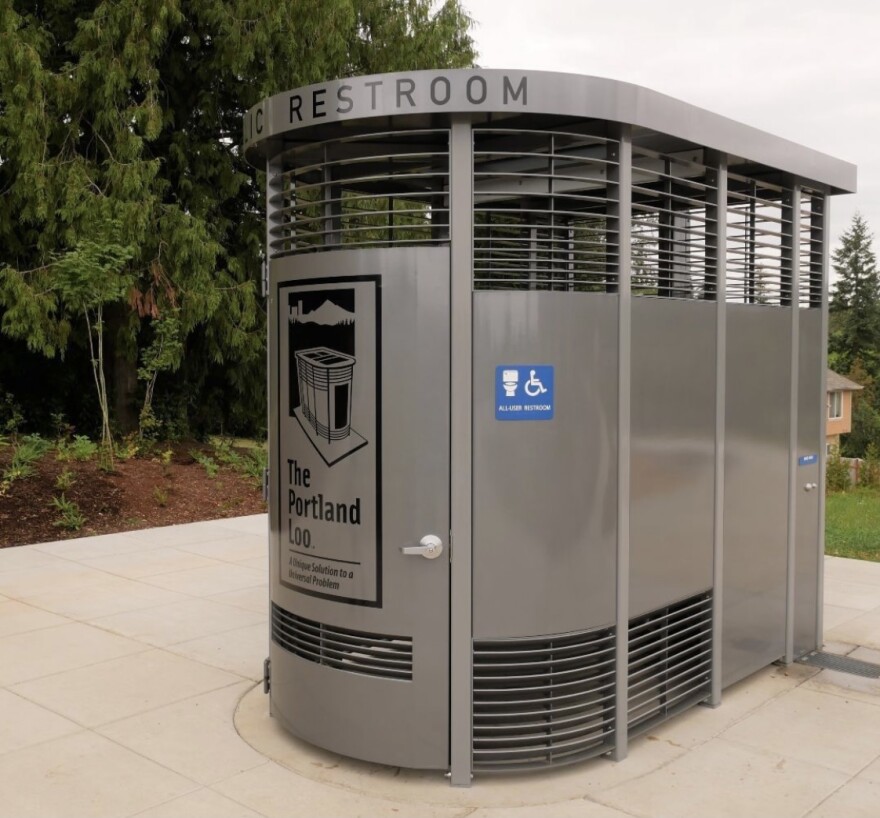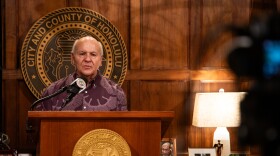Key elements of Honolulu’s recovery plan for Downtown/Chinatown hinge on dealing with homeless people in the area. Some long-term encampments have been moved but planned Honolulu Police Department and social service response teams are still in the making.
Meanwhile, life on the street has gotten worse, according to service providers. But other cities have solved at least one part of the problem, public toilets.
Some entrenched homeless encampments have been "cleaned up," but service providers say the same people are just camping elsewhere.
This time, going out with Hawai'i Health and Harm Reduction Center's Wound Care Team in Chinatown involves more heavy trolleys of supplies.
"We've had to carry a lot more items out with us these days with hygiene because unfortunately a lot of the shower spaces that are available for people have had to close again with the Covid outbreak we're experiencing right now."
Dr. Christina Wang leads the Wound Care Team that fans out in Chinatown twice a week. They can see a cut turn into a gaping abscess in a few days.
"So we're having to carry adult diapers and things like that for folks that have incontinence issues and now there's no shower for them."

"They've been closing the bathrooms too," Wang continues. "That's been really challenging. I think it's locked again today. So that's been extra stressful for our folks. Nowhere to wash, nowhere to go to the bathroom."
Where do you think they've been going to the bathroom?
"Oh on the street. There's nowhere to go to the bathroom."
With restaurants closed and sanitation concerns, finding a public toilet in Chinatown or anywhere in Honolulu is a challenge the city recognizes, according to City Housing and Homelessness Director Anton Krucky. He spoke at a Downtown/Chinatown Neighborhood Board meeting earlier this year.
"We have talked about that," said Krucky. "You know you have a tourism area, it's very hard to have good tourism without public bathrooms. But I get it, you open up public bathrooms now and it causes an attraction. I don't know what the right answer is, and I'd like to understand from you what you think the answer is."
Krucky pointed to often-cited problems with vandalism and loitering.
"This does say something about human dignity," said Neighborhood Board member Kevin Macdonald. "We are a tourist area. We are also an area inundated with people who need bathroom facilities. Let's get it done. Other cities can do it. We can do it too."
Yes, cities are trying to solve this problem.
Seattle famously offered automated, public toilets in the early 2000s. They paid $5 million for five toilets---and ended up selling them on Ebay several years later for between $1,000 and $5,000 each.
The city of Portland took note, and in 2008, they launched Portland Loo. Evan Madden's family owns the company that makes Portland's ADA-compliant, customizable public toilets.
"We use blue lights so you can't find your veins to shoot up," says Madden. "We have anti-graffiti powder coating so sharpie and spray paint don't stick to the restroom as easily. It can easily be cleaned off. It's got all these great features to make it efficient and strong and durable."

The toilets have been called a "soulless receptacle for body waste" but they do the job. There are louvers you can see through at the top and bottom of the cubicle but Madden assures us key areas are screened.
"So from above your knees to about shoulder height you always have complete dead space at the toilet level, and that's where the complete privacy is built-in."
But you can hear and see directly into the restroom.
"That's the way that keeps people from living in it, staying longer than they should."
It also helps with smells and lighting.
"It works out pretty well for not keeping people staying in longer," says Madden.
Orders for the Portland Loo have jumped since the pandemic, Madden says, because of sanitation concerns and because there are funds available now. The base price for a unit starts at $125,000 depending on the price of stainless steel. There are over a hundred in use now in the continental U.S. and Canada, and other public toilet designs are out there too.
For pregnant women, people with incontinence, on medication, seniors, children---needing a toilet can be panic-inducing.
A growing number of personal waste disposal products are testament to the need. Adult diapers of course, and devices like the Feminal, which is gas tank-like, with an intake spout.
The Tinkle Belle provides stand-up options for women. People report using them for extended social occasions, working full days at a job site, even presidential inaugurations.
Meanwhile, in Chinatown, Dr. Wang agrees, it's a cup, a bottle, a bag, or the street. And for cleaning up?
"Normally people would go to the shelter, especially if they know the rain is coming. They've been really full though, so I'm not sure where people will go today."
"It's hard when it just suddenly rains like this though because everybody's dressings are getting wet again."
You'll see the Wound Care Team in Chinatown every Tuesday and Friday morning. Look for the silver outreach van with colorful anime-style characters on the outside.






